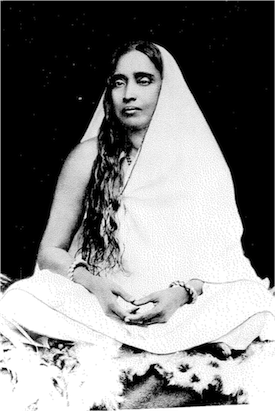In many cultures, both contemporary and ancient, hearing voices and seeing visions are not considered signs of disease. Yet western culture defines these experiences as irrefutable evidence of mental illness. The most common diagnosis applied to people who experience visions and voices is schizophrenia. Unlike many other psychiatric disorders listed in the DSM, which have been removed or reconceptualized over several iterations of the guide, schizophrenia has remained basically the same since its inclusion in the first edition of the DSM in 1952. Some of the symptoms of schizophrenia listed in the DSM are hallucinations, delusions, flat affect, and lack of pleasure with everyday life. But as my own journey with schizophrenia shows, the western medical model does not capture the lived experiences of many people with this diagnosis. I consider my experiences with voices and visions to be spiritual events with a biological component. The complex meaning of these events is obscured when schizophrenia is defined only in terms of the DSM’s list of diagnostic criteria.
I first experienced visual and auditory hallucinations when I had been pushed to my limit with the stresses of personal problems. I went to a church and asked God to help me. Suddenly, something spun me around and dropped me to my knees. A book popped out of the bookshelf: What I Believe, by André Malraux. Voices began telling me about my childhood and saying that I was selfish. I then began to be able to see things that happened in places other than my immediate environment.
Thinking I was becoming psychic, I investigated groups that helped develop psychic powers. This did not feel right. I spoke furtively with several people until I was given the name of an East Indian psychologist, Dr. Vasvada, who was a mentee of Carl Jung and a Brahman priest. Dr. Vasvada told me that a psychiatrist would lock me up in a hospital but that he understood these things differently. He treated me without payment because I was an unemployed college student. Guiding me through the “psychosis,” Dr. Vasvada helped me find meaning in the many messages I received. He became the person I depended on for my sanity. With his guidance I was able to live through the tumult and learn more about myself. These episodes happened again and again. I began to call my breakdowns “break-ups,” because I felt that I progressed upward, outside of myself, with each episode.
Dr. Vasavada stayed the course with me until he died. Then I was on my own, trying to use the skills I had learned from him to regain my balance each time. One year when I had a breakdown, I called the Indian consulate and described my problem to the person over the phone. I told him I was looking for someone like Dr. Vasavada. He referred me to Swami Bhashyananda of the Vivekananda Vedanta Society. Swami Bhashyananda asked me to move into his ashram. He put me through a course of meditation, which gave me a lot of insight into my problem, and decoded the mysteries of the psychosis for me.
When I became strong enough, I moved out of the ashram into an apartment. But soon I was “sick” again. I tried to attend graduate school but had another breakdown, so massive that I could not recover on my own. For the first time I sought psychiatric help. I was told that I had schizophrenia and was given thorazine, Haldol, and other first generation antipsychotic medications. The drugs dulled my mind, and I remained this way for several years until I was prescribed Zyprexa, a second-generation atypical antipsychotic medication. With this medication, in conjunction with therapy, I was able to seek part-time employment, and I began to have a “normal” life.
But I still wonder if I would have been better off in the safe confines of the ashram, never introducing myself to the many stresses of academic life or to the medications and their deleterious side effects. I have gained the worldly life I wanted, but I fear I have paid a terrible price with my spiritual well being and my health. Schizophrenia is much more than a constellation of symptoms. The condition seems to hold the key to my growth as a person, and I fear I may have compromised that with western medicine. Reluctantly, I have made peace with the fact that I still need medication. Yet I miss being able to learn as much about myself as I did at the ashram.
Unfortunately, the U.S. is very medical model-oriented and tries to solve emotional problems with medication. The DSM criteria, which are tailored for the strategy of treating schizophrenia with pharmaceuticals, omit a lot about how schizophrenia impacts an individual’s life. For example, cognitive impairment—such as poor executive function and trouble with attention and working memory—is known to be associated with schizophrenia but is not a criterion for the diagnosis. When it ignores these symptoms, the DSM is not much better than the general culture.
Another problem with the DSM is that it can be imperialistic. Dr Daniel Fisher of the National Empowerment Center points out that there are as many manifestations of schizophrenia as there are cultures. Fisher proposes that Puerto Ricans whose hallucinations speak from the grave to communicate with their families provide a valuable service for their loved ones. However, the most recent addition of the DSM does not authorize a diagnosis of schizophrenia if hearing voices is the only symptom present; this stipulation in the DSM5 makes it possible to distinguish between “hallucinations as illness” and “hallucinations as communication or service.”
My own experiences with visions and voices forced me to make difficult choices between western and nonwestern understandings of “schizophrenia.” For me, it has been impossible to know which path is better.


